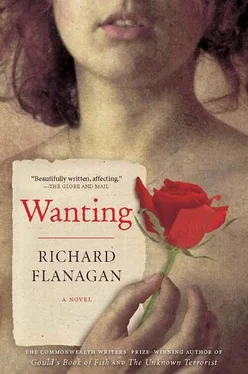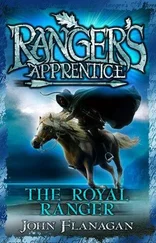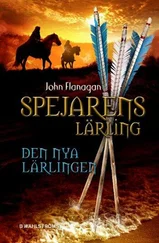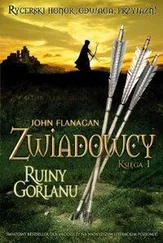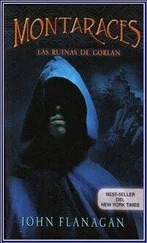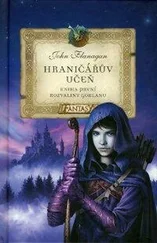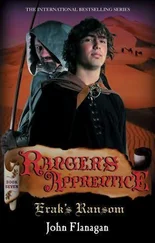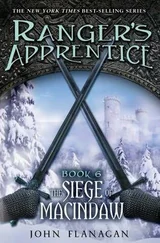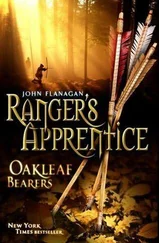Walter Talba Bruney walked through what remained of the night, returning to a world of light, of children laughing, of horses serenely eating grass, of people who had things to do and lives to live. As dawn broke, he passed an ox driver resting with his beast, and as his home drew close, he came upon a sight that reminded him of his beloved Bible and made him smile: a lamb lost on a road.
Garney Walch stood a moment longer in front of the ox, warming his hands in the steaming breath billowing from the beast’s wet-ringed nostrils. Then he, his ox and sled moved on. His path took him along a clifftop that overlooked the D’Entrecasteaux Channel and its fishing boats and led down into a small valley, where he was to help a farmer and his convict labourer build a barn.
They started the morning selecting dead trees that had barrels straight and true enough for good poles, and then set to work. After felling the trees and stripping their trunks of bark and branches, Garney Walch had his ox haul the poles to a small meadow glistening with so many wet spiders’ webs that it seemed veiled in a sticky gossamer. The hoar frost on the long grass was melting to a sparkling dew, and all things, including the men and the ox, steamed in the winter sun as they worked, and all things seemed to have a place.
A mile away, an old lag waded out on a small rocky reef, shivering and cursing and happy in his pursuit. He emptied a dog’s leg from a hessian bag into a wicker lobster pot and, carefully choosing his point at the drop-off where a large amount of bull kelp rose, lowered the pot with a long line of hemp rope. And so the sun rose, birds sang, men worked, boats sailed by, and life went on.
A dazzling sunburst of light, ruby gold in colour and warm on the flesh, burst through the eucalypts and found the three men: the farmer, who was worried about his wife, pregnant with their fourth child; the convict, who was hoping to find a wife once free; and Garney Walch, who carried his grief for a daughter lost to typhoid twenty years before as a stone in his belly. The men worked with few words around the fallen trees, rolling, chocking, measuring, sawing, until at last they had nine good poles.
They loaded the sled, three poles a trip from the paddock to the homestead, and before each trip Garney Walch patted the ox on its muzzle and seemed to be sharing a joke with it. He was unexpectedly gentle with such a beast, as though the burden of the logs were equally borne by both.
The sun swung its low winter course, the men slowly divested themselves of coats and worsted shirts, till they laboured only in trousers and dirty undershirts, and when the sun had risen as high as it would get and the men felt no longer stale and putrid but fresh and good, they halted. While the convict got a fire going with the oily spikes of grass-trees, Garney Walch produced some cold hoggets’ necks from his sugarbag. The farmer had bread and salt, and they moved two of their poles to form seats around the fire and ate their cold hogget and bread with relish, then washed it down with black tea sweetened with the farmer’s plum jam, and talked happily of how well they lived.
After lunch they returned to their labour. As each pole was set in its hole and then the earth rammed into place around it, the men rejoiced. The barked poles were the colour of gnawed bones, dull white with vivid ochre streaks, and the way they stood in odd pattern, both part of and separate from the world around, filled the men with a deep pleasure for which they had no desire for words.
So that he would be home before the worst of the night cold, Garney Walch left an hour before dusk. Because both he and his ox were weary, he took the long way home through the forest, avoiding the hills of the morning. A quarter-mile down the right-hand fork of a muddy track that ran through to Ira Bye’s sly grog shop, the ox stopped and refused to go on.
Raising his head from his memories and the sled, which he simply followed as though he were the dumb, obedient animal, Garney Walch’s first impression was of how the bare feet splayed over the broken bracken fern seemed so small.
He stepped around the sled and the ox to get closer. The back of the body, ragged clothes partly torn away, was crawling with so many lice it more resembled an insect nest than a human being. Several bloody holes gored the exposed flesh where forest ravens had eaten, their unreadable footprints in the mud around. He dug the tip of his boot in under the shoulder and rolled the body out of the dirty puddle, and immediately felt ashamed for treating a fellow human being so.
He stood there silent. Mist was filling the forest and everything was lost in its soft white shroud. Beads of water ran down the white glistening trunks that stood like pillars of salt, rising, falling, crumbling. As his silver hair grew wet, as water began gathering like dew on his face, he felt increasingly lost in a dream.
For Garney Walch knew her. Only a few weeks before, he had seen her break into a drunken dance in the middle of a Hobart street before it was even noon—part native jig and something of a toff’s dance, half-hyena and fully a princess, queer, lost, belonging and not belonging. A few had jeered, some threw scraps of food at her, urchins chased her as though she were a bird with broken wings.
It was not so hard to guess how she died—the twisted rag, the bruised neck, the torn dress—but he doubted there would be any trouble, far less an inquest.
His gaze followed the dead girl’s open eyes upwards. Beyond, life went on as it always had, oblivious to tragedy or joy. Over the next ridge, in a rude, lonely cottage of boughs, a woman was moaning in childbirth, while down on the rocks a fisherman cursed after pulling up his pot only to discover the legs and shells of crayfish left by a thieving octopus.
‘That’s how it goes,’ said Garney Walch softly, as he closed her eyes.
There was nothing left of her other than work. He picked her damp body up with hands that were at once very large and very gentle, and, placing it on the sled, he cleared the rags of bark away before laying her down, her head framed between his axe and saw.
She had been seven years old when he first swung her through the air and sat her on his cart and tweaked her toe. She had reminded him then of his dead daughter. She had been beautiful.
He tried to tally the passing years. The world was darkening, the long night was only beginning, a tree dropped a bough, a boobok owl ate a pardalote, and a black swan flew skyward. He dropped his head, his calculations done. She would have been seventeen years old.
‘How it goes,’ he murmured, ‘and keeps on going.’
With the stringybarked back of a hand, the sawyer wiped a dead and milky eye, then stroked the ox on the muzzle and asked it to help him carry the poor child home, her dirty feet jolting over the sled’s back as the ox took up its burden, their light-coloured soles disappearing into the longest night.
This novel is not a history, nor should it be read as one. It was suggested to me by certain characters and events in the past, but it does not end with them.
Only the barest details of Mathinna’s life are known, and the fate of Sir John Franklin’s lost expedition still remains a subject of speculation, as does the precise nature of Charles Dickens’ relationship with Ellen Ternan. Lady Jane Franklin did enlist Dickens to rescue the reputation of Sir John’s expedition from the charge of cannibalism levelled—accurately, it would later prove—by Dr Rae, and Dickens did write a strong riposte that today could be characterised as racist. He did become obsessed with the story of lost Arctic explorers, The Frozen Deep was staged, and as an actor Dickens was a sensation. Ellen Ternan did appear on stage with him. Dickens does seem to have fallen in love with her, and to have left his wife because of that love, and he and Ellen Ternan did pursue a secret life together until his death. Exactly what together means remains debated.
Читать дальше
